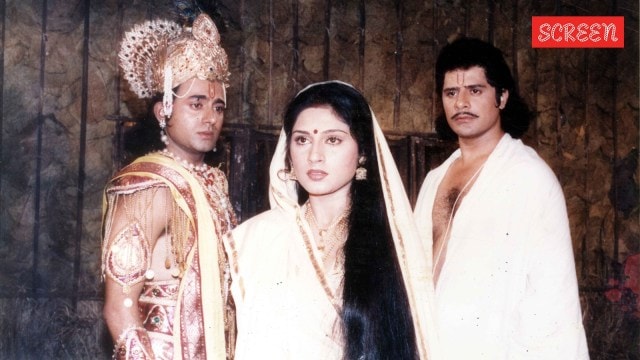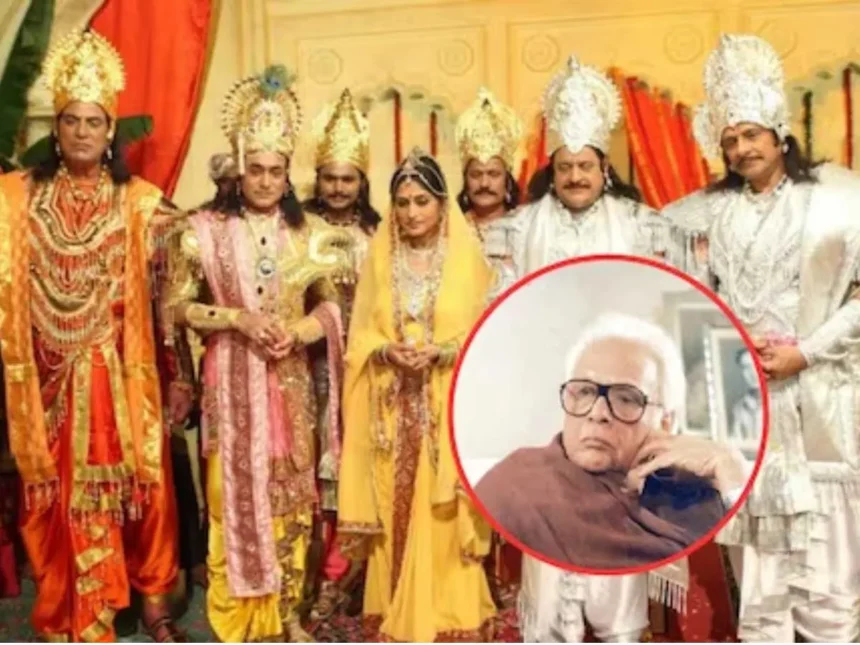In 1988, when BR Chopra brought the epic Mahabharat to Indian television, he wasn’t just taking on a storytelling behemoth—he was challenging social prejudices. Chopra chose Rahi Masoom Raza, a Muslim writer, to pen the Hindu epic. What followed was resistance, skepticism, and controversy, but also the birth of what would become one of India’s most iconic TV shows.

Choosing Mahabharat Over Ramayan
Doordarshan approached BR Chopra in the 1980s to adapt either Ramayan or Mahabharat. He chose the latter, calling it “a story of what not to do.” Unlike Ramayan, which was perceived as a tale of moral ideals, Mahabharat was layered and complex. To make it work for television, Chopra needed a writer who could simplify the tangled narrative and make it resonate with everyday viewers.
Enter Rahi Masoom Raza
Rahi Masoom Raza, a celebrated Urdu poet and novelist, was Chopra’s choice. The decision was met with skepticism—not because of his writing skills, but because of his religion. In a behind-the-scenes interview, Chopra revealed, “People think of this as a Hindu story. We don’t think so. But the way he wrote it… everything just went out the window. We signed him.”
It was Rahi who came up with the iconic line, “Main Samay hoon” (“I am Time”), the voice that narrated the show. This brilliant narrative choice brought cohesion and gravitas to the sprawling epic.
Doordarshan’s Objection: “How Can a Muslim Write Mahabharat?”
Despite being impressed with the episode plans, Doordarshan officials questioned the inclusion of a Muslim writer. BR Chopra stood firm. As recounted by his daughter-in-law Renu Chopra on The Kapil Sharma Show, he said, “Mahabharat isn’t Hindu or Muslim. It is the story of every family. If Rahi saab is asked to leave, then I will walk out as well.”
Raza’s Defiant Response to Hate
In a 1990 interview with India Today, Rahi shared the backlash he faced, including threats from right-wing groups. “I’m hurt and amazed at the furore created about a Muslim writing the script. Am I not an Indian?” he asked. He revealed that after his polite response, even the Vishwa Hindu Parishad sent an apology.
A Legacy That Endures
The show’s aesthetic might feel dated now, but the storytelling—anchored in Raza’s writing—remains timeless. His ability to humanize the characters, simplify philosophical dilemmas, and create dialogue that resonated with viewers made Mahabharat a landmark in Indian television history.
The Aamir Khan Parallel
Years later, Aamir Khan would hint at his desire to adapt Mahabharat for the big screen. The idea, though not formally announced, invited similar backlash. On April 16, 2024, Aamir reiterated his passion for the project, expressing his desire to make it a multi-film saga. Like Raza, he faced questions rooted not in capability but in identity.
More Than a Religious Text
Chopra’s words ring true even today: “Mahabharat is not Hindu or Muslim—it is a story of human conflict.” Every family has its share of disputes, betrayals, loyalties, and moral dilemmas. That’s what makes the Mahabharat universal.
Thanks to the creative vision of BR Chopra and the literary genius of Rahi Masoom Raza, the Mahabharat was transformed from a religious epic into a shared cultural experience—one that belonged to all Indians, regardless of faith.
Conclusion
What Rahi Masoom Raza achieved wasn’t just a script—it was a statement. A powerful reminder that art transcends boundaries, and stories—when told with honesty and integrity—belong to everyone. His work remains a beacon for those who believe in unity through storytelling.
Categories: Indian Television, Entertainment History, Cultural Commentary
Tags: BR Chopra, Rahi Masoom Raza, Mahabharat 1988, Doordarshan, Aamir Khan Mahabharat, religious tolerance, Indian TV history, epic storytelling, Indian screenwriters, communal harmony in media









